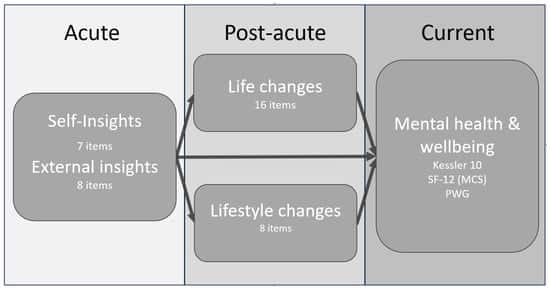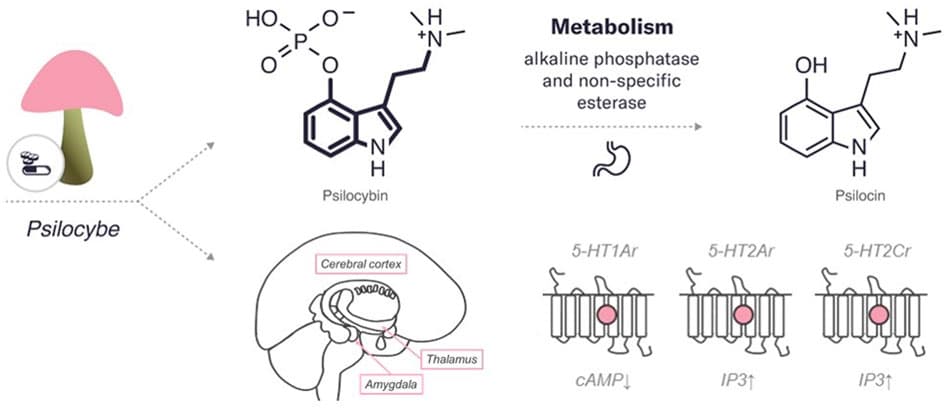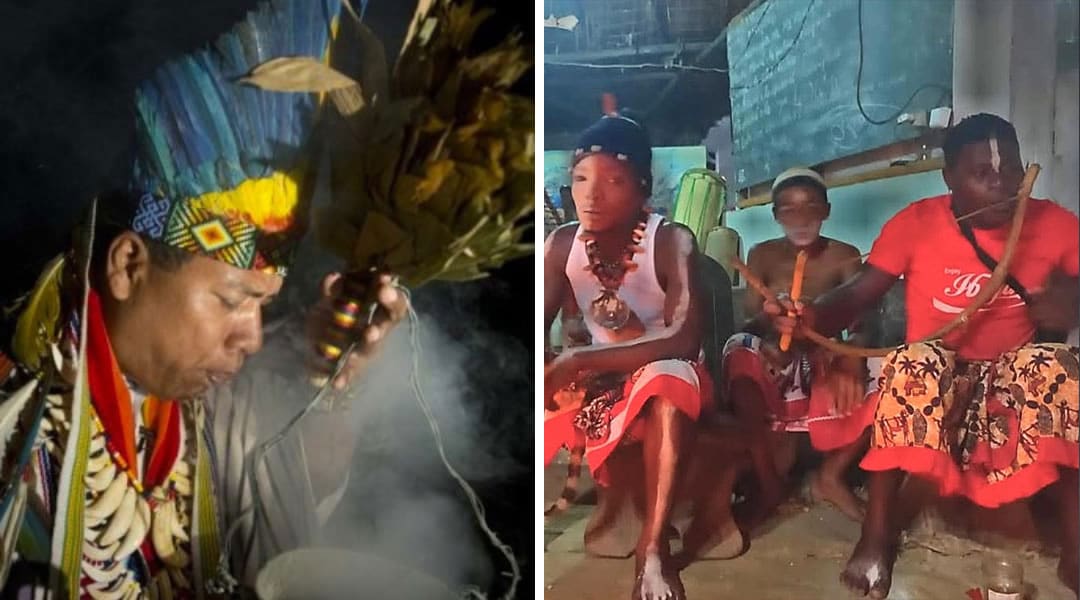Welcome to Ayahuasca Experience, your sanctuary for understanding sacred plant medicine. Dive into our latest exploration: «Iboga vs Ayahuasca» – unraveling the mysteries behind these profound healing journeys.
Exploring the Distinctive Paths of Transformation: Iboga vs. Ayahuasca in Spiritual Retreats
The realm of spiritual retreats offers a myriad of pathways for personal transformation, self-discovery, and healing. Among these, the use of sacred plants like Iboga (Tabernanthe iboga) and Ayahuasca (Banisteriopsis caapi and Psychotria viridis) stand out for their deep-rooted cultural significance and transformative potential.
Both Iboga and Ayahuasca are known for their profound psychoactive properties, which can catalyze intense spiritual experiences. Iboga, originating from Central West Africa, is central to the Bwiti spiritual practices, while Ayahuasca has been used for centuries by indigenous communities in the Amazon basin.
Participants in an Ayahuasca retreat often seek healing from psychological trauma, emotional wounds, or a deeper understanding of themselves. The Ayahuasca brew induces a powerful visionary state that lasts several hours, where individuals might confront challenging aspects of their subconscious and receive insights into their life’s purpose.
In contrast, Iboga is revered for its ability to facilitate a profound introspective journey that can last up to 24 hours or more. It is often turned to for breaking free from various forms of addiction or negative habitual patterns. The Iboga experience is typically described as a mental journey through one’s past, enabling the participant to analyze and release past traumas.
The settings in which these plants are consumed are also distinct. Ayahuasca ceremonies are usually led by an experienced shaman or curandero and involve a series of rituals and traditional songs or icaros to guide the experience. Iboga ceremonies, on the other hand, may be facilitated by a Bwiti shaman, with a focus on ritualistic dance and storytelling.
The physical effects of each plant are markedly different as well. While Ayahuasca can cause significant gastrointestinal upset, leading to purging, Iboga can affect the cardiovascular system, necessitating careful screening for potential participants.
In choosing between an Iboga or Ayahuasca retreat, it is essential for individuals to consider their intentions, medical conditions, and readiness for potentially life-altering experiences. Though distinct in their cultural origins and effects, both plants offer unique paths towards transformation and must be approached with respect, reverence, and ideally, under the guidance of knowledgeable practitioners.
AYAHUASCA VS. IBOGA 🌿 | My Thoughts & Experiences
Iboga vs Ayahuasca
What kind of substance is iboga?
Iboga is a psychoactive substance derived from the roots of the African shrub Tabernanthe iboga, which is indigenous to the rainforests of West Central Africa. In the context of Ayahuasca Retreat and Healing, iboga is sometimes considered for its potent psychotherapeutic effects and is often used in traditional spiritual ceremonies by the Bwiti religion in Gabon.
Like ayahuasca, which contains the powerful psychoactive compound DMT, iboga contains the active alkaloid called ibogaine, which has been reported to induce profound psychological introspection and visions that can be instrumental in personal transformation and healing. Those participating in an iboga retreat hope to gain insights into their lives, initiate changes in patterns of behavior, or even address substance dependence issues such as opiate addiction.
It’s important to note that the use of iboga, much like ayahuasca, carries significant risks and should be approached with caution. It requires supervision by experienced facilitators or healers who understand the potent effects and potential side effects of the substance.
In many countries, iboga is classified as a controlled substance due to its strong psychoactive properties. Therefore, it is essential for those interested in iboga healing retreats to research the legal status of iboga in the country where the retreat is being held, and to carefully consider the health and safety implications of participating in such an experience.
How many individuals have lost their lives due to ibogaine?
Ibogaine is a psychoactive compound derived from the African iboga shrub, traditionally used in spiritual practices by indigenous peoples. It is worth noting that ibogaine is distinct from ayahuasca, which is a brew made from the Banisteriopsis caapi vine and other ingredients, typically DMT-containing plants like Psychotria viridis. Both substances are used in different types of traditional healing ceremonies and have been associated with contemporary addiction treatment and spiritual retreats.
There are no definitive statistics on the exact number of individuals who have lost their lives due to ibogaine use because it is often consumed outside of regulated environments. However, there have been reports of fatalities associated with its use. The deaths are generally attributed to pre-existing health conditions, improper dosing, or lack of proper medical supervision during the experience.
It’s important for individuals considering an ibogaine treatment to be aware that it can have serious cardiovascular risks and is contraindicated for people with heart issues, among other health concerns. As such, it is essential to only partake in such treatments under the guidance of trained professionals who can provide appropriate health screenings and supportive care.
The conversation around ibogaine, as with ayahuasca, often centers on the need for careful consideration, respect for the potency of the substance, and awareness of the legal and health risks involved. As with any powerful substance used for healing or spiritual exploration, there is a strong emphasis on the importance of set and setting, intention, and preparation to mitigate possible risks.
What are the side effects of iboga?
Iboga, also known by its scientific name *Tabernanthe iboga* or simply as ibogaine when referring to its primary psychoactive compound, is a plant that has been used traditionally by West African cultures for ritualistic purposes and has gained attention in the West for its potential in treating addiction and various psychological conditions. It’s important to note that iboga and ayahuasca are different substances and come from different cultural backgrounds, although both are entheogens and have been used in a context of spiritual healing and self-discovery.
When considering iboga within the context of a retreat or healing center, the potential side effects need to be carefully weighed and managed under professional supervision. Here are some of the key side effects associated with the use of iboga:
1. Cardiovascular Risks: Iboga can induce changes in heart rhythm and rate, which might pose risks, particularly for individuals with preexisting heart conditions.
2. Neurological Effects: Users may experience ataxia (loss of control of body movements), tremors, and seizures, which can be dangerous without proper medical oversight.
3. Gastrointestinal Issues: Nausea, vomiting, and abdominal pain are common side effects, which can lead to dehydration if not managed correctly.
4. Psychological Distress: While iboga can offer profound psychological insights, it can also provoke intense and sometimes disturbing visions or memories, which can be overwhelming, especially for individuals with a history of mental health issues.
5. Prolonged Duration: The effects of iboga can last for 24 to 36 hours, requiring a long recovery period and continuous support from experienced facilitators.
6. Potential for Toxicity: High doses of iboga can be toxic to the liver and other organs, so dosage must be carefully calibrated according to individual tolerance.
7. Risk of Drug Interactions: Iboga can interact with other substances, so it is crucial that participants abstain from drugs, alcohol, and certain medications before and during an iboga session.
Due to these potential side effects, iboga should only be taken under the guidance of knowledgeable practitioners and ideally within a controlled environment such as a specialized retreat center that provides medical supervision and support. Prior medical screening is essential to minimize risks. Lastly, it’s important to remember that the legal status of iboga varies by country, with it being a controlled substance in some areas, necessitating careful consideration and compliance with local laws.
What is the spiritual significance of iboga?
In the context of Ayahuasca Retreat and Healing, Iboga (often associated with the potent psychedelic substance ibogaine derived from the African Tabernanthe iboga plant) is less commonly used than Ayahuasca but holds a significant spiritual value of its own, particularly in West African traditions.
The spiritual significance of Iboga centers around its use in traditional Bwiti spiritual practices in Gabon. For members of the Bwiti religion, Iboga is seen as a sacred tool for spiritual exploration and healing. It is believed to facilitate deep introspection, allowing individuals to confront personal issues, heal psychological trauma, and gain profound insights into their lives.
Like Ayahuasca, Iboga is often described as having the ability to connect individuals with a higher spiritual reality, often experienced as encounters with ancestors or spiritual beings. This connection is said to provide guidance, wisdom, and healing that can be transformative on both a personal and community level.
During therapeutic or spiritual retreats that incorporate Iboga, participants may undergo a detoxifying process that not only purifies the body but also serves as a rite of passage on their spiritual journey. The substance is known for inducing visions and providing access to a deep state of introspection—considered by many as a way to “reset” their life’s path and address root causes of harmful behaviors or thoughts.
It’s important to note that Iboga, like Ayahuasca, should be approached with respect and caution due to its powerful effects. It is typically administered within a ceremonial context under the guidance of experienced healers or spiritual leaders who understand its properties and can provide a safe space for the intense experience it often induces.
While Iboga is not traditionally part of Ayahuasca healing retreats, both substances share similarities in their use for spiritual growth and emotional healing. They are revered for their potential to facilitate existential exploration and to help people make profound changes in their lives. However, it’s crucial to acknowledge that they are distinct entheogens with unique cultural backgrounds, traditions, and effects.
Frequent Questions
What are the differences in the healing experiences between Iboga and Ayahuasca in a retreat setting?
Iboga and Ayahuasca offer different healing experiences due to their unique psychoactive properties and cultural backgrounds. Ayahuasca, a brew from the Amazon, typically induces vivid visions and emotional release, allowing participants to confront personal trauma and gain spiritual insights. On the other hand, Iboga, a root bark from Central Africa, is known for its more intense, introspective journey that can facilitate a deep mental reset, often addressing addiction and negative patterns. The setting of a retreat provides a controlled environment for these experiences, with guidance from experienced facilitators or shamans focused on safety and integration of the healing process.
How do the safety and preparation protocols vary for an Ayahuasca retreat compared to an Iboga ceremony?
Safety and preparation protocols for an Ayahuasca retreat often include dietary restrictions, psychological evaluations, and medical screenings to ensure the absence of contraindications with MAOIs. Participants are usually advised to follow a dieta, abstaining from certain foods, medications, drugs, and alcohol to sensitize the body and reduce adverse reactions.
For an Iboga ceremony, preparation also involves a strict diet, thorough medical examination, including heart health assessments due to the substance’s cardiovascular risks, and psychological readiness. Iboga can be particularly intense and long-lasting, demanding more extensive health screening procedures ahead of time. Both practices require guidance from experienced facilitators for safety.
What factors should one consider when choosing between an Iboga or Ayahuasca retreat for personal healing and spiritual growth?
When choosing between an Iboga or Ayahuasca retreat for personal healing and spiritual growth, consider the following factors:
- Intention and Desired Outcomes: Reflect on your personal goals. Ayahuasca may offer profound psychological insights, while Iboga is known for its more direct confrontation with the deeper self.
- Physical and Psychological Health: Consult with healthcare professionals to evaluate any potential health risks. Both substances can be intense and have contraindications.
- Cultural Alignment: Consider which plant medicine resonates more with your beliefs and values. Ayahuasca has Amazonian roots, whereas Iboga is central to Bwiti spiritual practices in West Africa.
- Legal Status: Research the legal status of both substances in the host country to ensure the retreat operates within legal parameters.
- Reputation and Safety of Retreat: Choose reputable centers with experienced facilitators, prioritizing safety and support during your journey.
- Preparation and Integration Support: Ensure the retreat provides comprehensive guidance for preparing for and integrating the experience afterward.
- Duration of Effects: Ayahuasca experiences typically last several hours, while Iboga can last up to 24 hours or more, so consider your willingness to commit to a longer process.
Making an informed decision based on these factors can help you choose the right retreat for your healing and spiritual journey.
In conclusion, both Iboga and Ayahuasca offer unique pathways to healing and self-discovery. While they share similarities in their ability to facilitate profound inner journeys, their differences are equally notable. Ayahuasca, with its ceremonial use rooted in Amazonian traditions, provides a deeply spiritual experience often described as a rebirth, accompanied by vivid visions and emotional release. In contrast, Iboga, grounded in the Bwiti religion of West Africa, is known for its more introspective voyage that can bring clarity and resolution to deep-seated issues.
Choosing between these two powerful plant medicines depends on personal healing intentions, cultural resonance, and the guidance of experienced practitioners. It’s crucial to approach either one with respect, adequate preparation, and an openness to the transformative experiences they offer.
Participants of Ayahuasca retreats seeking alternative methods of healing should thoroughly research and consider the implications of using Iboga, just as those drawn to the latter should do the same for Ayahuasca. For many, these plant medicines have marked a turning point in their lives, leading to profound healing and a renewed sense of purpose. Regardless of the path chosen, the journey with these entheogens is a deeply personal and potentially life-changing endeavor that must be undertaken with care, respect, and intentionality.






